The Green School Project 2.0: Empowering Education for a Greener Tomorrow
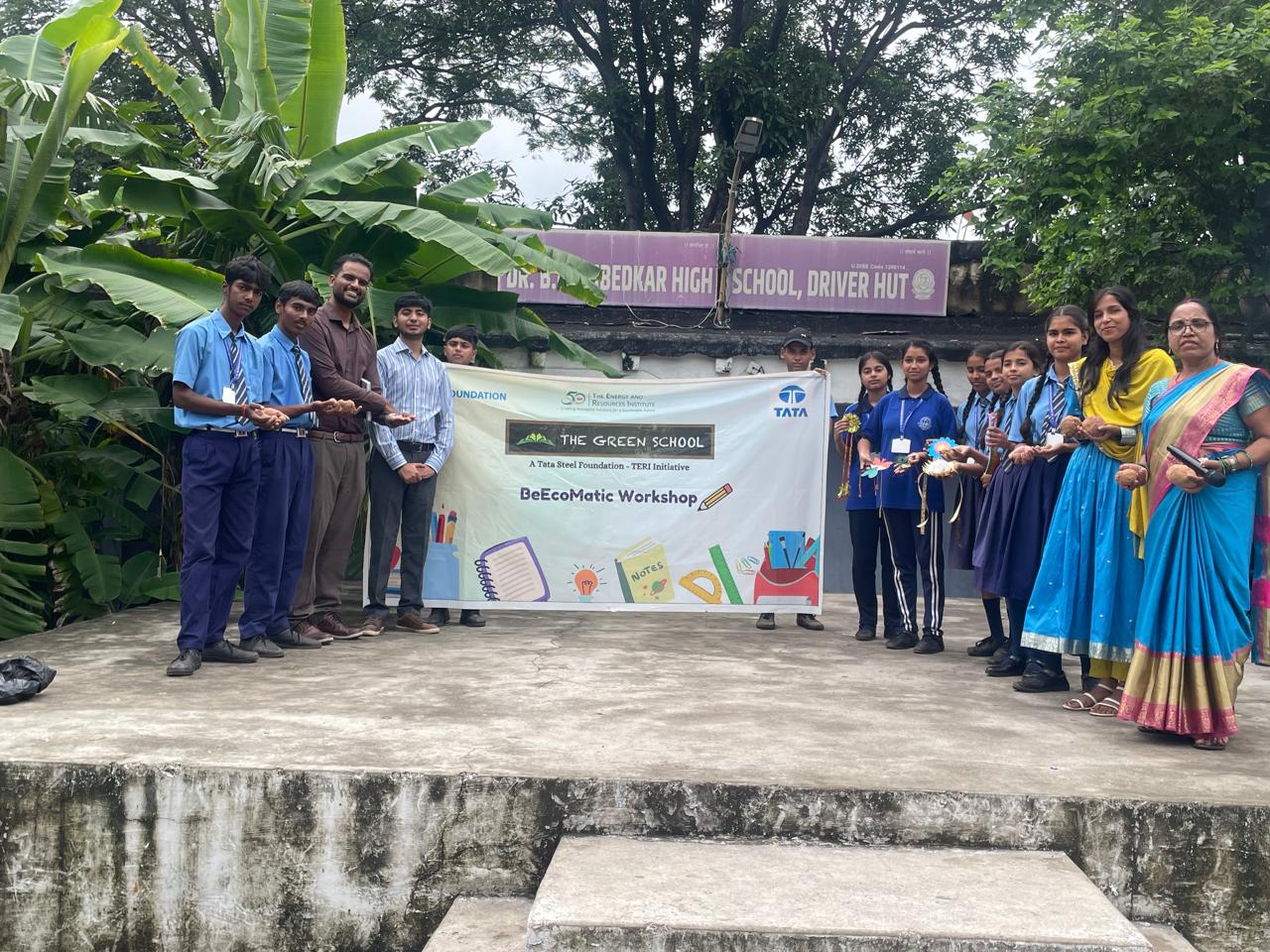
The Green School project 2.0 is a pioneering collaboration between the Tata Steel Foundation (TSF) and TERI. This initiative aims to foster critical thinking, interdisciplinary learnings, and a profound understanding of environment conservation values amongst the students studying in schools operating in Tata Steel operational areas. By integrating themes such as energy, water, forest & biodiversity, and waste with climate change and Sustainable Development Goals (SDGs), The Green School project empowers young individuals to advocate for the well-being of our planet by initiating behavioural changes.
Currently, the programme directly benefits students and teachers in selected schools in six Indian states- Jharkhand, Maharashtra, Odisha, Punjab, Uttar Pradesh and West Bengal. The project also touches lives of linked parent-teacher associations (PTAs), local communities and members of school administration. It focuses on enhancing the skills of middle school students through activity-based teaching-learning programmes, aimed at promoting awareness of environment and sustainable development issues.
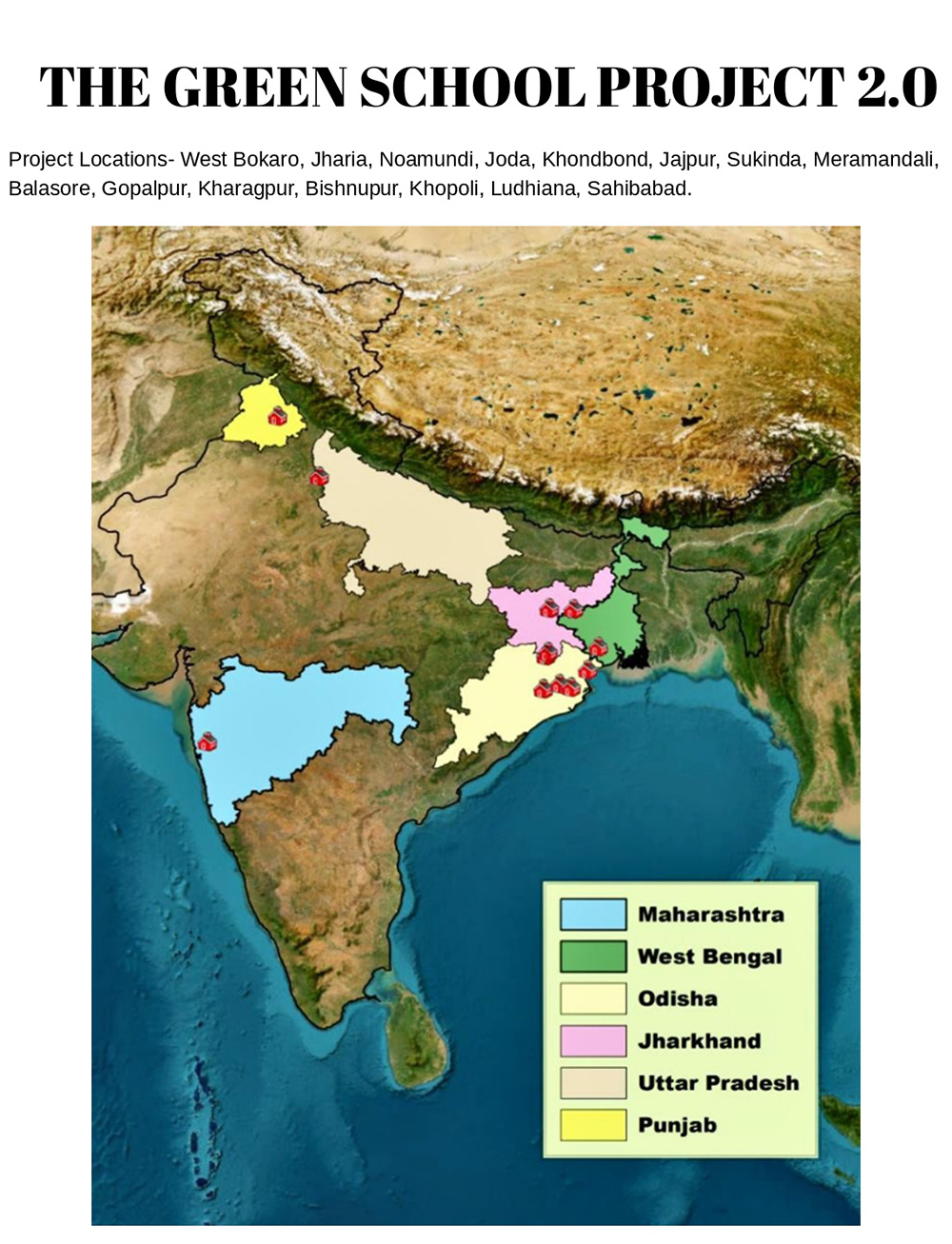
The Green School project 2.0 is the new version of The Green School project which was launched in 2017 and has successfully implemented seven phases. During Phase VII (2024-25), this project reached out to approximately 110 schools in 6 Indian states (Fig 1). A series of teacher training sessions and workshops were organized, focusing on transformative learning and collaborative idea generation for environmentally sustainable practices. Resource materials were developed to aid instructors in integrating environmental issues into the teaching and learning process, facilitating behavior change and student engagement. An important milestone was the active participation of students and teachers in the World Sustainable Development Summit (WSDS) in New Delhi, where they showcased initiatives for a greener future.
The Green School project is one of the flagship initiatives of the Environment Education and Awareness Division at TERI. With seven successful phases executed in collaboration with the Tata Steel Foundation, this project has laid a solid foundation in promoting environmental consciousness amongst school students. The success of the project places a greater responsibility wherein a change is incorporated to lift the implementation from knowledge to empowerment. The Green School project 2.0, is being planned in a manner that it will broaden the scope of impact by integrating green skills training aligned with a sustainability-driven vision. A few basic elements of earlier editions will also be continued with a purpose of consolidation and strengthening of project imprint.
BeEcoMatic Workshops On Green Skills
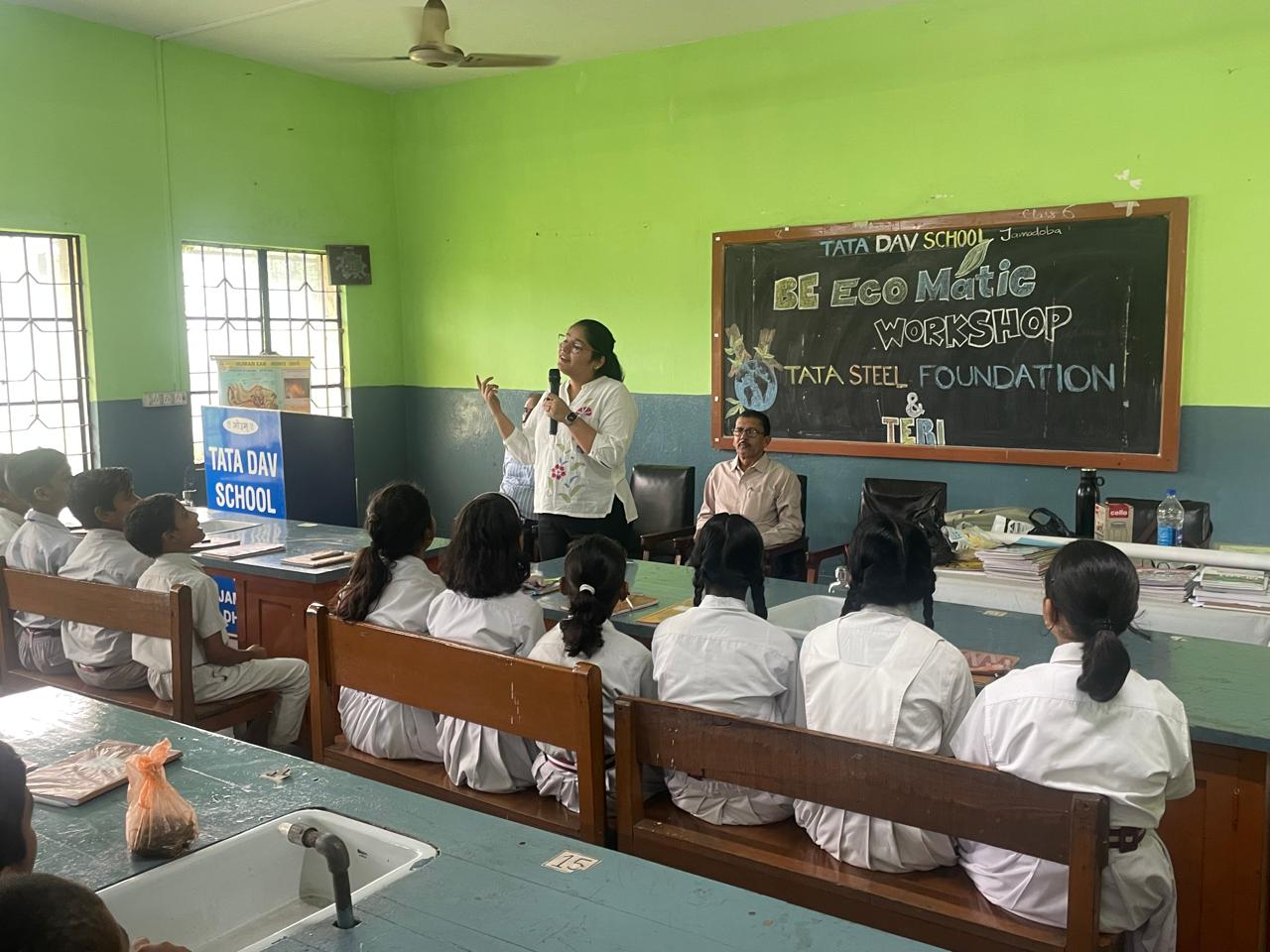
BeEcoMatic Workshops for training students have been designed under The Green School Project 2.0 to strengthen their understanding of green skills and sustainable practices. Building on the earlier seven phases of the project, which focused on energy, water, waste, and biodiversity through capacity-building and sensitization of students, teachers, and community members, the new cycle emphasizes practical skill development aligned with the SDGs and the growing needs of green industries. Through targeted training in areas such as renewable energy, waste management, water conservation, and biodiversity management, students are encouraged to acquire technical expertise and apply it in their daily lives to promote sustainable lifestyles. As part of this initiative, the workshop included sessions on:
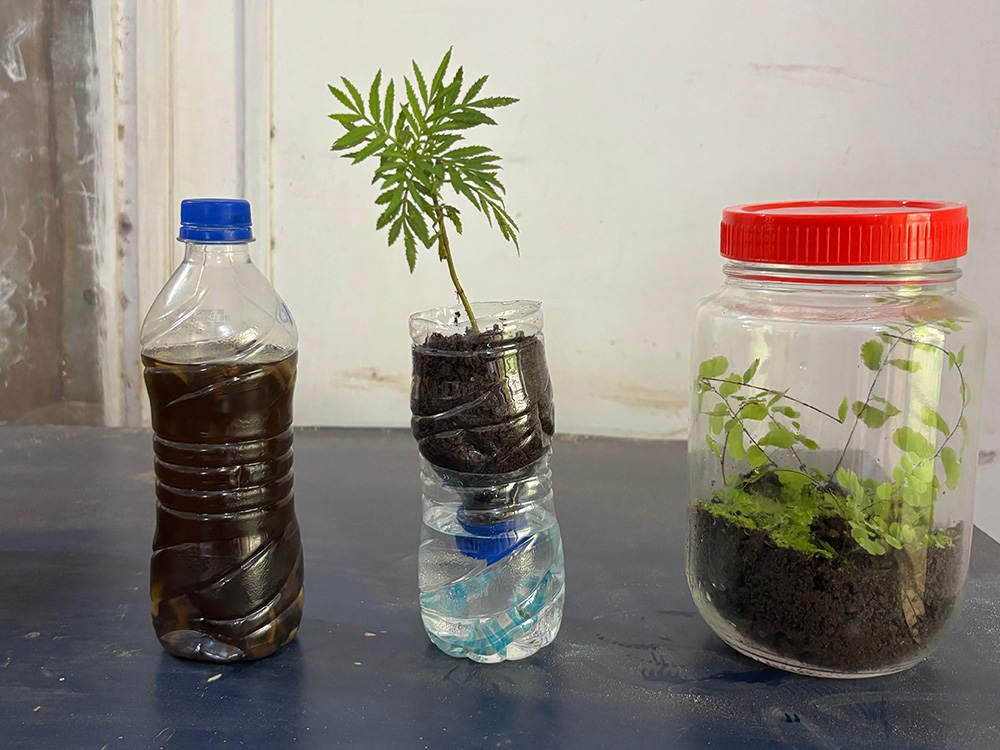
- Understanding the practical application of bio-enzymes
- Engaging in creative DIY activities
- An introduction to plant tissue culture and quality planting material
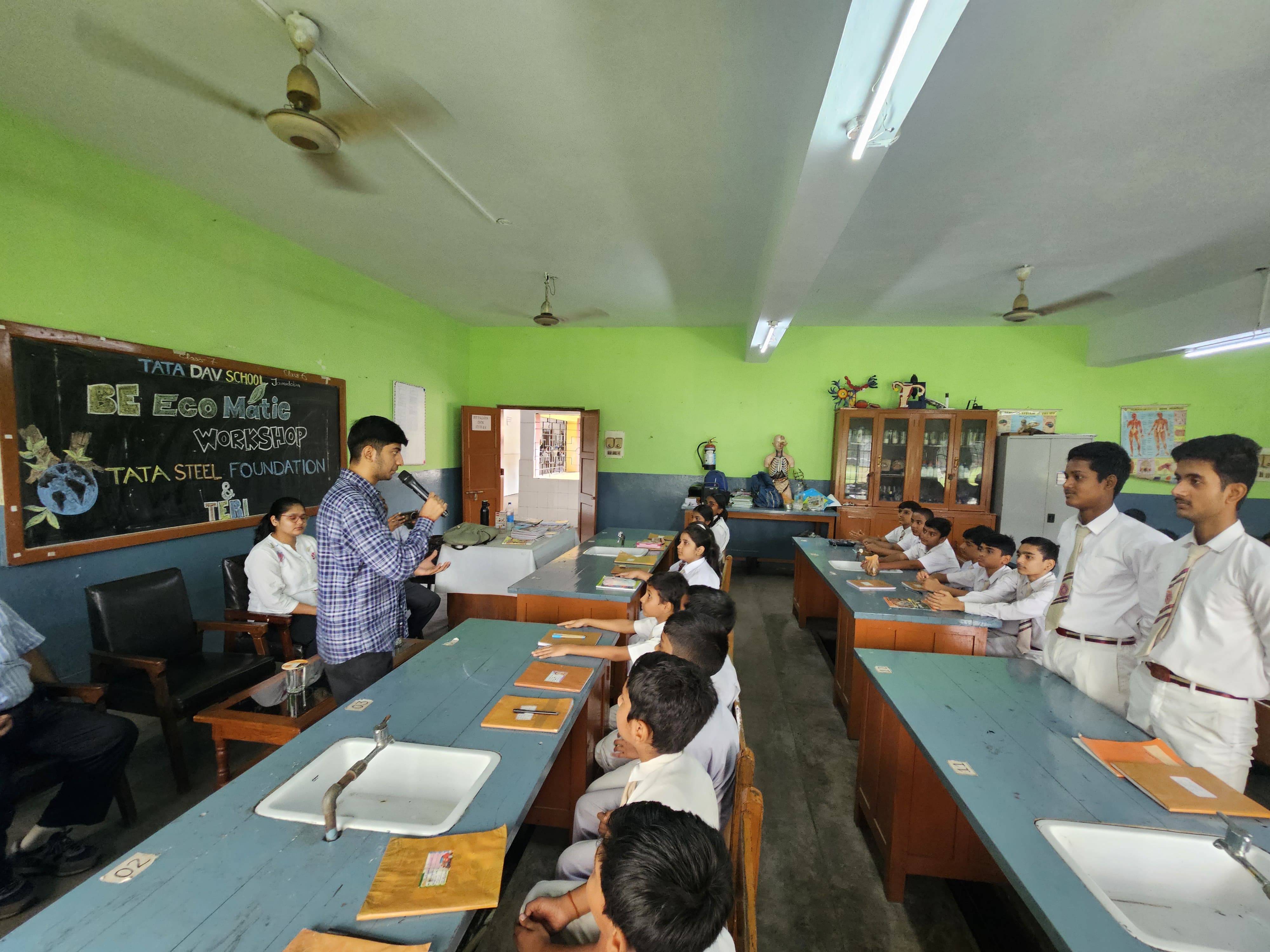
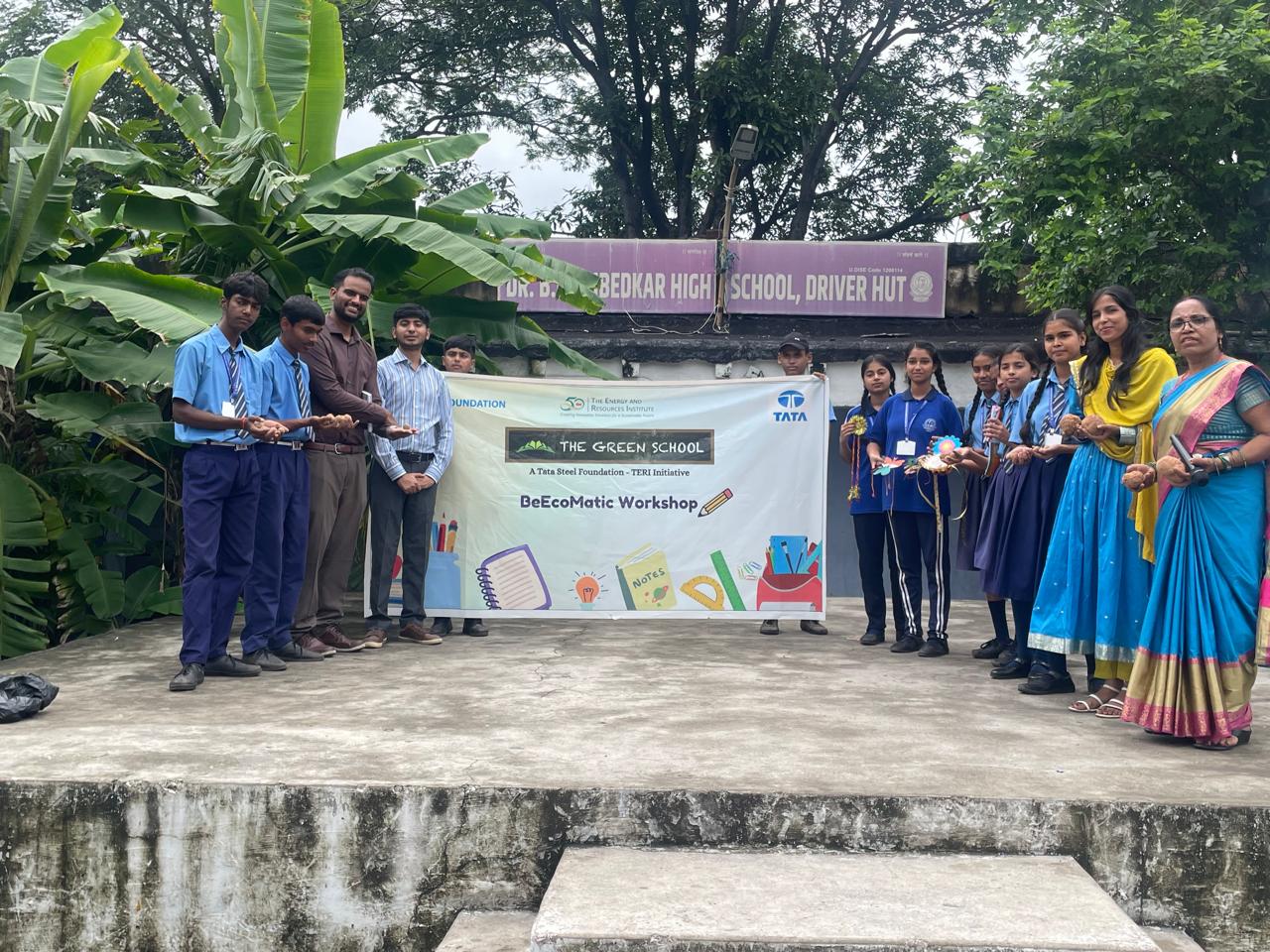
Teacher’s Workshop on Green Skills
Teacher’s workshops are an integral component of The Green School Project 2.0, as they play a vital role in equipping educators with the knowledge and skills required to guide students toward sustainable practices. These workshops are designed to build teacher capacity by introducing them to emerging areas of green skills, with focused sessions on topics such as renewable energy and plant tissue culture. Through expert-led discussions, teachers gain insights into the scientific and practical aspects of these themes, enabling them to integrate sustainability concepts into classroom teaching in a more engaging and impactful manner. In addition to the technical sessions, special emphasis was placed on the formation of School Activity Calendar Plans.
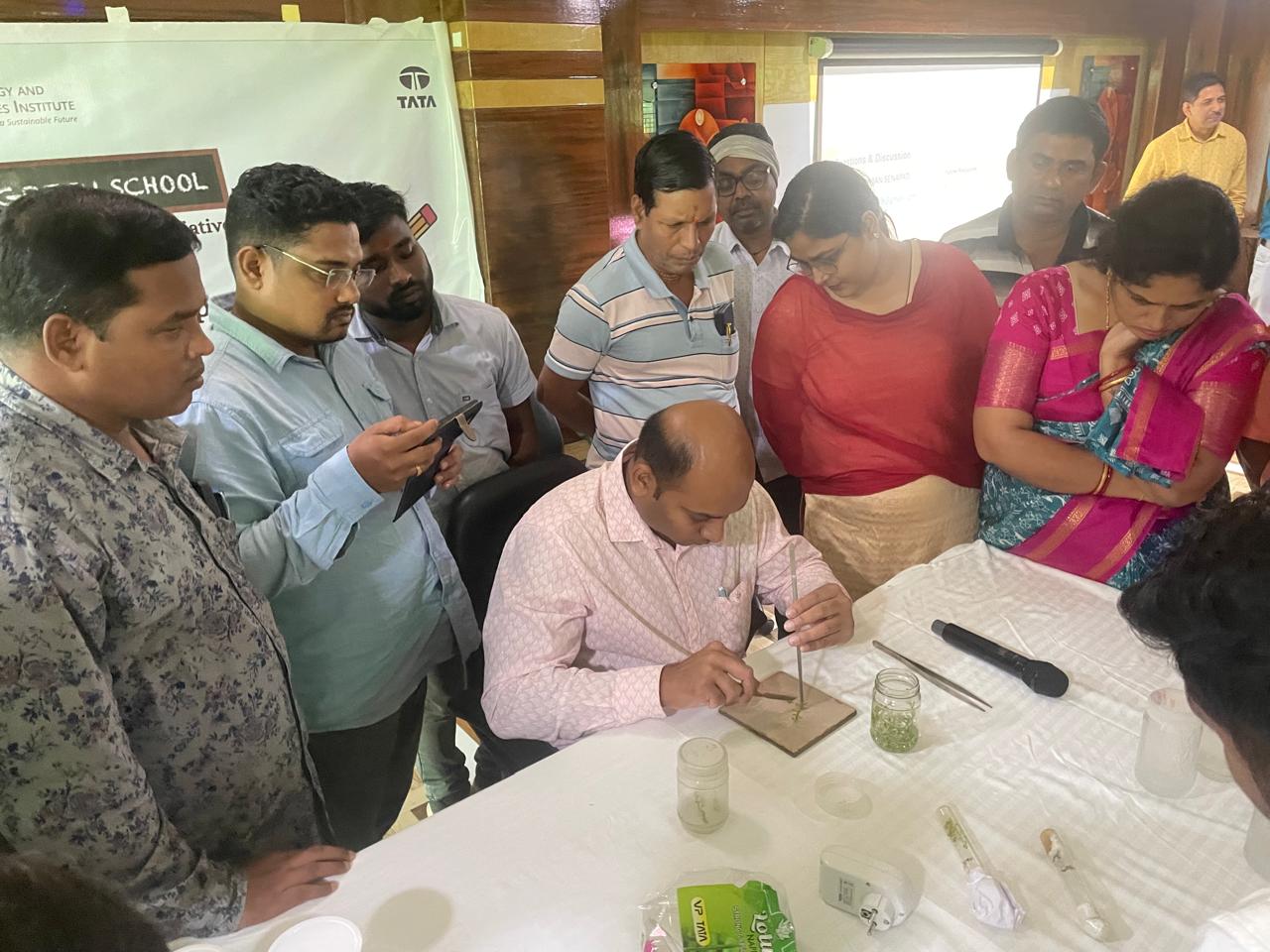
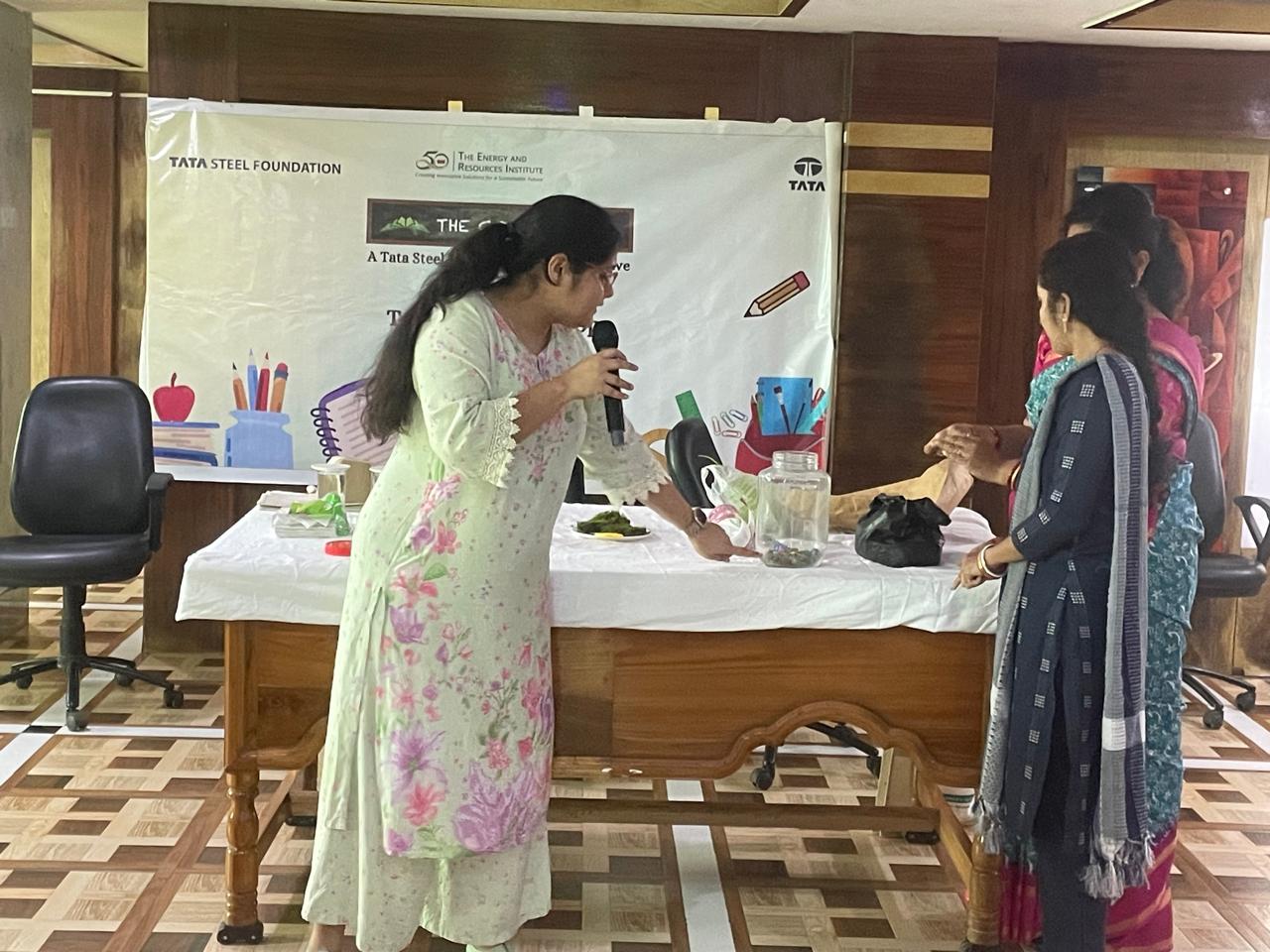
The Green School - Advancing a Step Towards Sustainable Behaviour
Launched in April 2017 by Tata Steel Foundation and TERI, The Green School Initiative aims to foster behavior change for environmental conservation and build resilience in vulnerable communities. It drives school ecosystems by exploring curriculum connections, implementing action projects, and conducting capacity-building activities across four major themes: Energy, Water, Forest & Biodiversity, and Waste, with links to Climate Change and the Sustainable Development Goals Agenda 2030. The initiative focuses on empowering middle school students, teachers, and community members through capacity building training programs to spread climate change mitigation and adaptation messages to a wider audience.
Launched in 2017, the project has expanded significantly in its seventh phase, growing from 10 schools in 2 states to 110 schools across 6 states — Jharkhand, Odisha, West Bengal, Punjab, Uttar Pradesh, and Maharashtra. It now engages over 35,000 students and 1,100 teachers, fostering student-led initiatives that promote sustainability on a larger scale.
Building on the achievements of Phase VI, Phase VII further integrates climate change, INDCs, and Sustainable Development Goals into school curricula by creating age-appropriate learning modules. These modules include hands-on activities designed to inspire creative thinking and environmental action. Location-wise teacher training programs, capacity-building workshops also referred to as “BeEcoMatic workshops,” and expert sessions were integral components of this initiative. A major highlight of this initiative is the promotion of traditional knowledge and practices rooted in India’s heritage and active participation of students in actionable projects with communities, such as organizing rallies, setting up bamboo drip irrigation systems, creating compost, producing bio-enzymes, recycling paper, and engaging in hands-on activities.
WSDS 2025
To amplify the impact of environmental initiatives, the project's learnings were shared at national and international platforms. As part of Phase VII, the project’s insights were showcased to the global community at the World Sustainable Development Summit (WSDS) 2024 in the thematic track, “Partnering for a Greener Future.” This thematic track highlighted how The Green School initiative integrates environmental education into the school curriculum. Opportunities were explored to identify ways in which partnerships with different stakeholders could help scale the project’s journey.

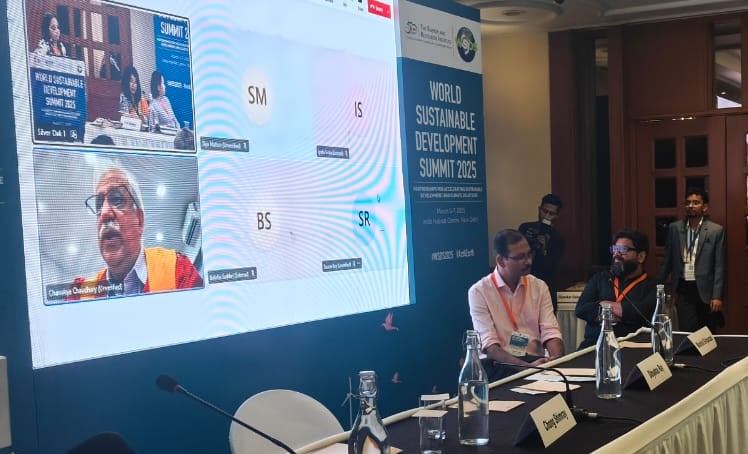
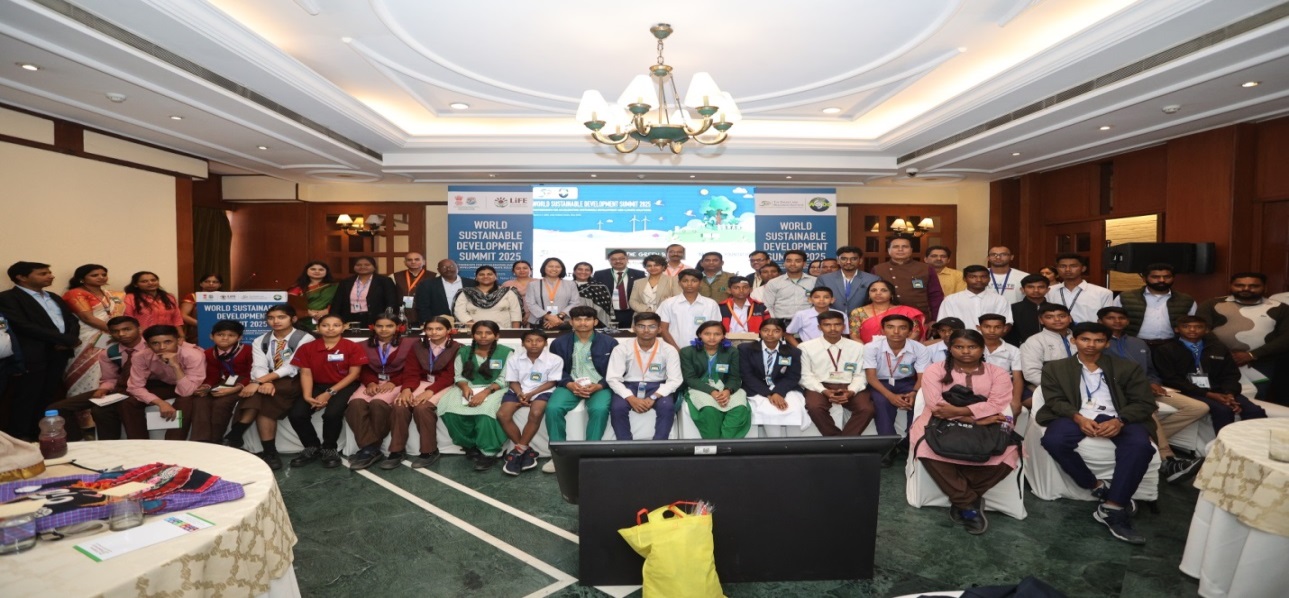
Phase VII continues to empower students to act as agents of change by adopting traditional practices and working on actionable projects to instill behavior change among their peers. Through hands-on involvement, students are encouraged to lead initiatives that promote sustainability and environmental stewardship, inspiring their communities to follow suit. This approach fosters a deep sense of responsibility towards the environment and equips students with the skills to drive long-lasting positive change.
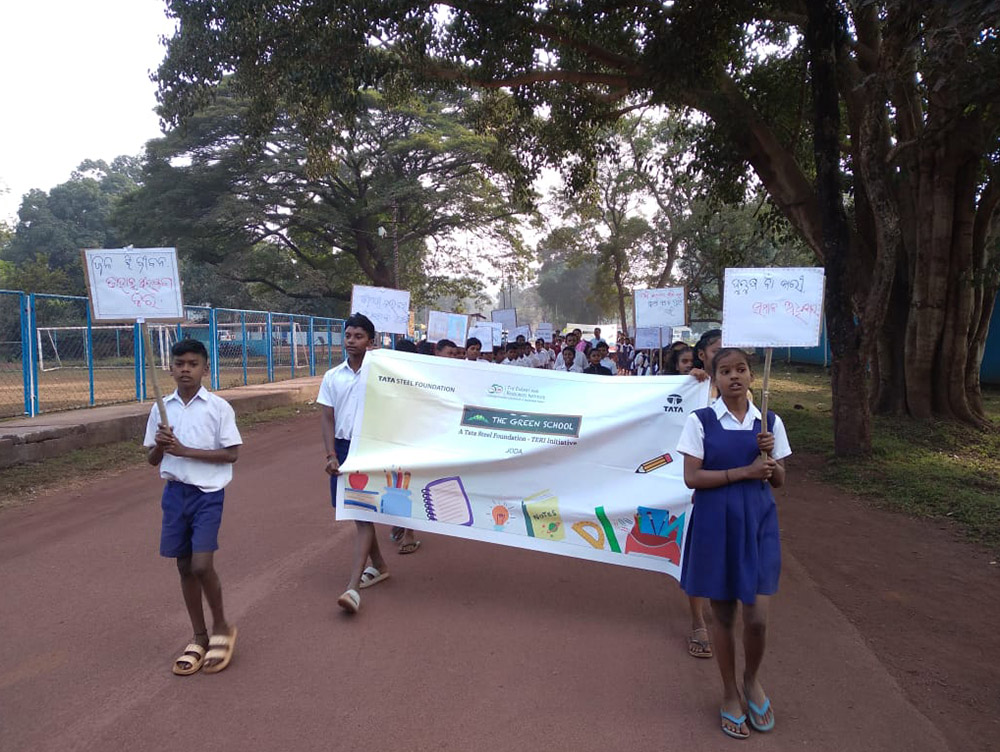
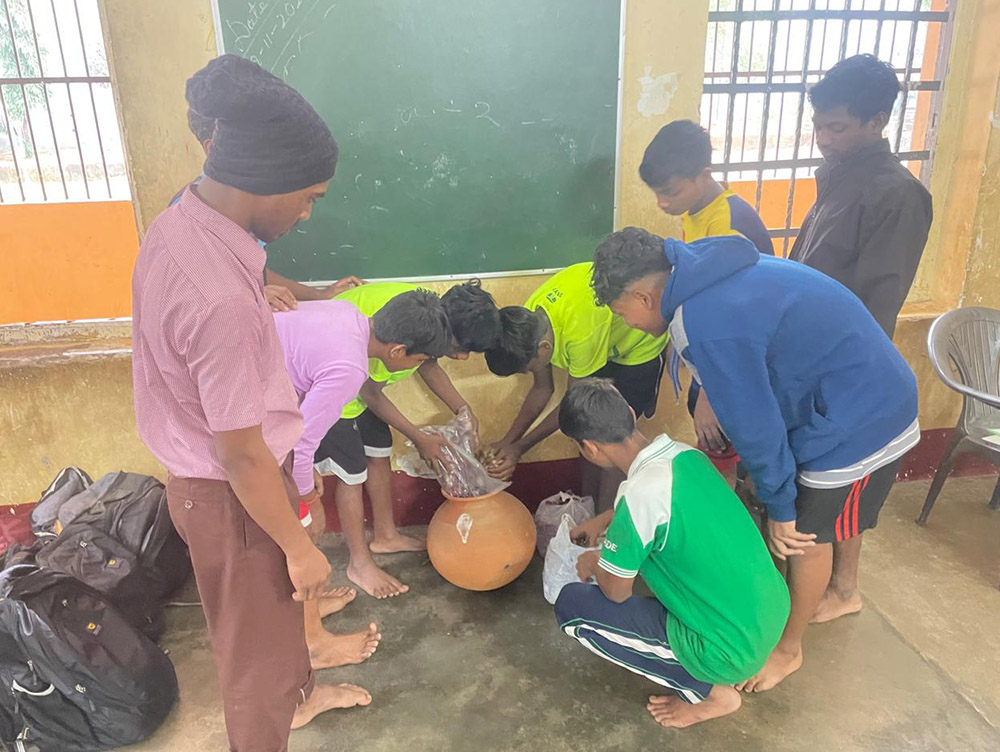
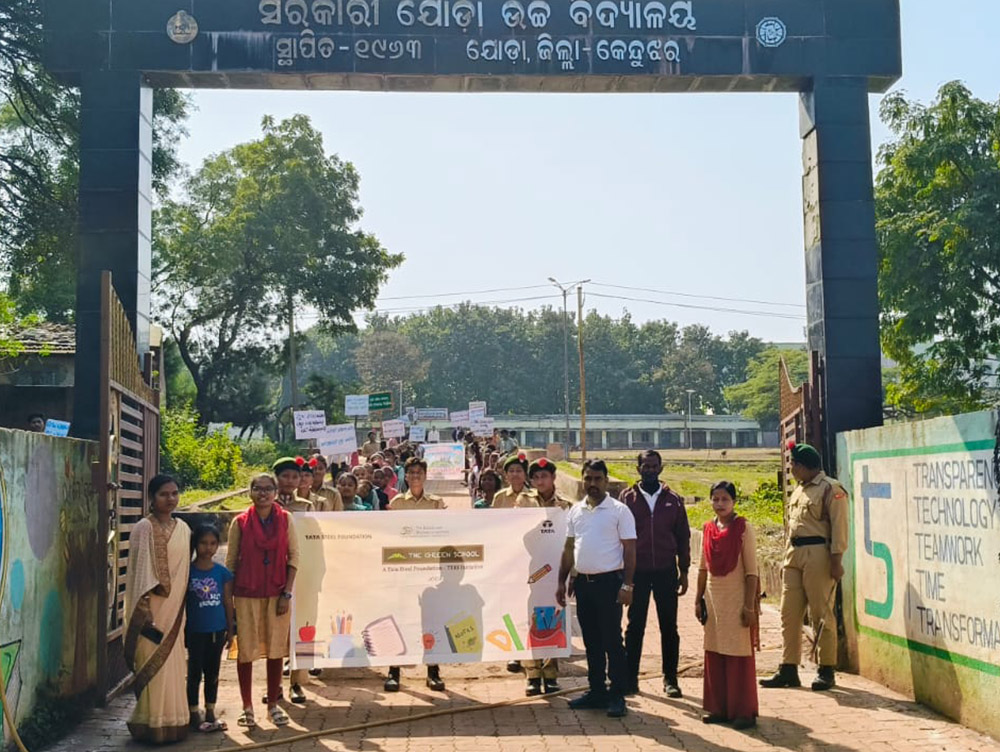
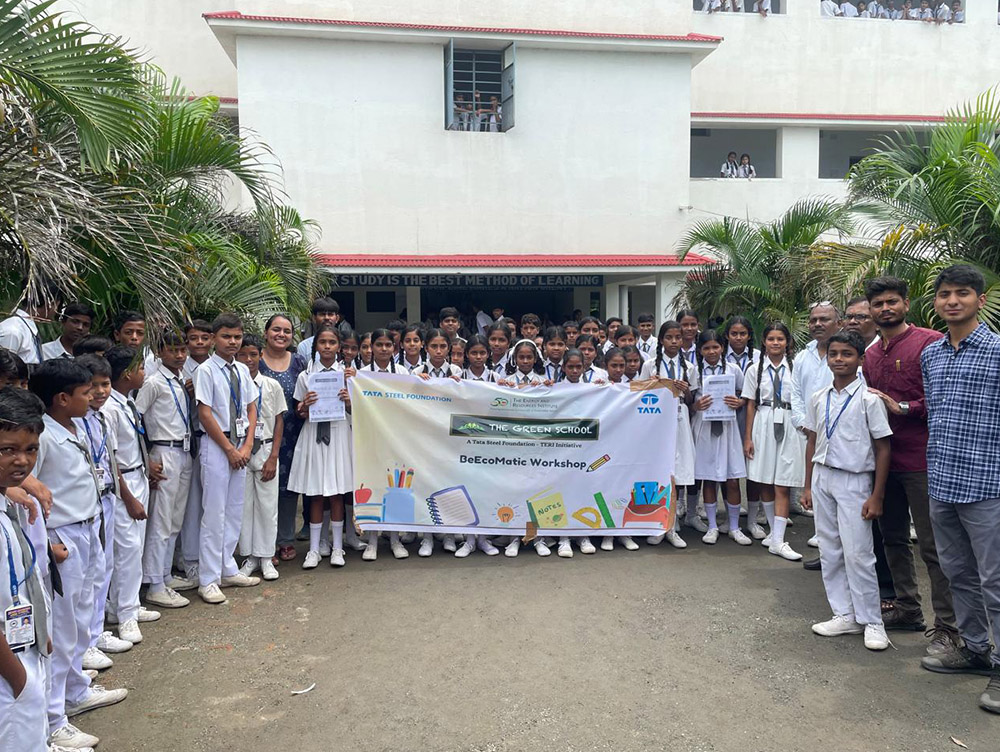
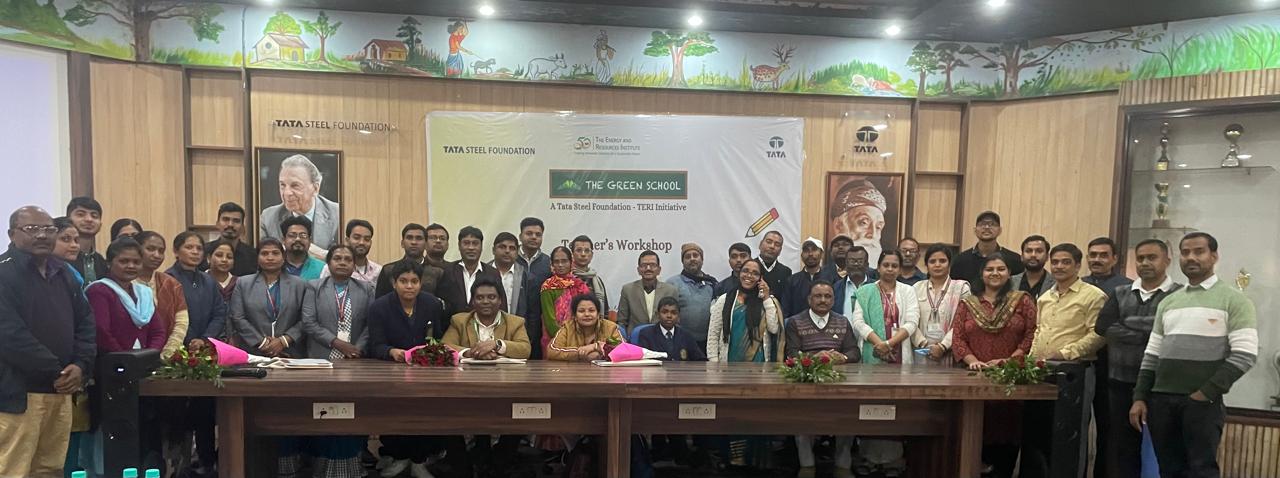


Resource Materials
DIY Bioenzyme Cleaners: How to Make Them at Home
Link: https://youtu.be/K_aUOp_MCSM
DIY Seed Ball: How to Make Them at Home
Link: https://youtu.be/ksRGM7r00CY
